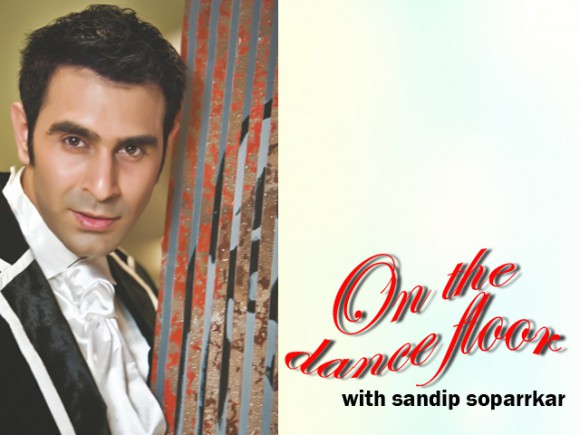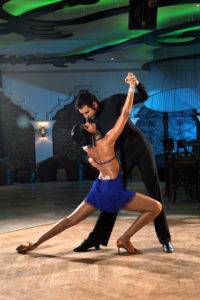Dancaholic dancer

For some dancers, work never stops. It doesn’t matter whether they are physically present at a rehearsal hall or not, these dancers clock in early to write that choreography, make arrangements for clothes, skip lunch to finish a creative planning conversation on the phone and again stay back till late, waiting for approvals and whatever is finalised for a show. Weekends, when they should be having a hot cup of chai or sipping chilled beer with friends or even having a dinner table conversation with family, are mostly spent resolving show and stage issues. We label them as ‘workaholics’, the ones who get a buzz from working under intense pressure. It doesn’t matter whether the pressure is real or not; work addicts put themselves under constant pressure because that’s the only way they can function.
Such dancers themselves call them dancaholic, well it might sound good and a thing to be proud about to some but I feel that a balance is important. I do understand that when a passion like dance turns to work, it does not feel like work at all, one enjoys each moment of it. I have been through this grind, so I can relate with dancaholic dancers.
But in the long run, it can be harmful for the dance not just physically but even mentally. Psychotherapists call such dancaholic people as the ones who have traits of obsessive compulsive personality disorder (OCPD). It is said that a dancaholic craves for the sense of achievement and it is driven mostly from insecurity and perfectionism. For a dancer, a work of dance is far more than just a source of income; it often eclipses everyone and everything in their lives.
I was reading a few studies from the West that said addiction to work is no less than addiction to alcohol. It affects a dancer’s emotional and physical wellbeing. On one of my show trips to Japan, I remember the Japanese calling a workaholic person karoshi which means death by overwork.
I have seen a dancer who is fully engrossed and submerged in his work neglects people close to them. Such a dancer does not think close relationships need maximum time. Many-a-times even if they are close to their families, their minds are preoccupied with dance. After working very hard all day and almost all night, they are so tired that they have no stamina for any activity outside work. So it can become a very vicious cycle for such dancaholic people.
I feel such a dancer is unable to balance professional and personal lives and this inability to balance the two leads to grief from family which reinforces the idea that dance is an ideal way to escape from personal conflicts.
Being a dancaholic can be very dangerous for a dance lover. Such a person has little or no opportunity for social life and thus, may not develop social skills. They are also unable to relate to people outside work or even their family because you are working even at home. They become one-dimensional and blinkered in their outlook which amounts to lack of creativity and the inability to build lateral thinking skills. This can also lead to stagnated work for many, with which I mean similar looking choreographies, moves and steps. Dance is a field where people skills are important so the best is to go out often and meet people. They are also prone to a lot of stress, which many-a-times, leads to ways to de-stress through addictions such as smoking, drinking and caffeine. Finally, all this affects their physical and mental health and that is when the downfall begins.
So how can a dancer who is dancaholic find the right balance in his or her life? What can be done to ensure that the right equilibrium is maintained and it still does not affect the work and the profession. According to me best is choose your life pattern yourself, do not be governed by others. Harness habits and skills that allow you to make your own rules in this rat race of dancing. Avoid talking work over lunch and dinner. We all work hard for good food so remember to respect it when it is in front of you. Enjoy the moments as this is what you have been working for all these years. Switch off your mobile on Saturdays and Sundays and keep weekends for yourself. If weekends are busy due to shows and events, fix a day during the week when you will do this. And then do not worry about being left behind.
Gradually, reduce the dance work hours. By this, I do not mean compromising on the quality of work and dance. And most importantly, ensure you refuse to feel guilty when you are not working or dancing. Also, develop skill sets and an attitude that allows you to finish work within 10 hours, do not stay back just because your co dancers are doing so.
Recently, I also read that a voluntary organisation in the UK had organised a “Go Home on Time” day. The main aim for them to do so was to bring to light that long hours of work be it at office or related to art can impact family and personal life. This campaign encouraged people to make a conscious decision to have, at least, one day in a week when they would leave all that they were doing on time and spend time with family or just by themselves, doing things apart from work.
I have seen a very young dancer today work like crazy. My only advice is that dance is a field where we have to keep thinking and sharpening our skills all the time. If we do not take care of our mental and physical , we will burnout soon and our beautiful god gifted career will end sooner than we will realise. Remember to switch off on weekends and have fun so that you can keep dancing forever.



